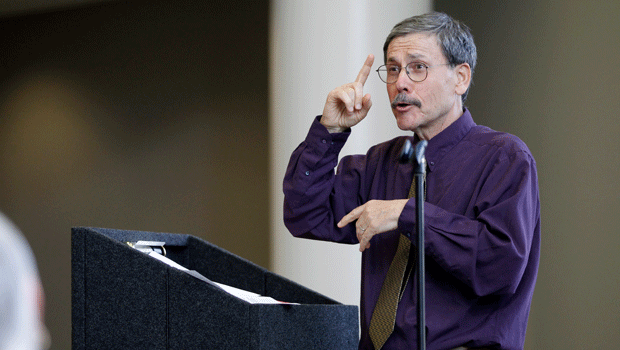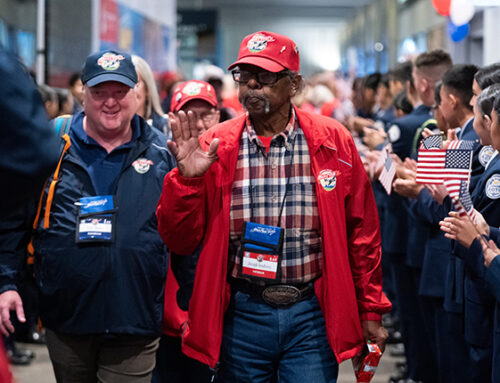A $1 million dollar gift from a donor who wishes to remain anonymous will address the growing need to train Valley educators to work with deaf and hard of hearing students who also have other special needs.
The gift will go toward the endowment of Scarlett’s Park, a program within Fresno State’s Silent Garden. The Silent Garden program was founded in 2008 by Dr. Paul W. Ogden, deaf studies professor emeritus, to foster opportunity, understanding and awareness for the deaf and hard of hearing community.
Scarlett’s Park will provide resources to families of deaf and hard of hearing children with other special needs. The program will bring nationally recognized experts to Fresno State to share knowledge with parents, educators and professionals. All services will be offered free of charge.
The donor whose gift made Scarlett’s Park possible said in a letter to the University, “I have chosen Fresno State as a place to endow Scarlett’s Park in the Silent Garden because I see this unique garden as a fruitful place to create a lasting and much-needed resource for parents, teachers and professionals. My dream is that Scarlett’s Park will be a cornerstone of the deaf education program. I am joining Fresno State President Joseph I. Castro and his charge to be bold and to boldly serve this much-needed community.”
Once established, Scarlett’s Park will be the only program in California designed specifically for families with deaf or hard of hearing children with other special needs.
According to the Gallaudet Research Institute, about 40 percent of children identified as deaf or hard of hearing also have additional special needs, such as vision impairment, autism, cerebral palsy and learning disabilities.
“Teachers in the field of deaf education do not have the training and knowledge to teach any children with other special needs,” Ogden said. “The same is true for teachers in special needs programs. Special needs is a huge area and it is not possible for one teacher to become an expert. For example, working with a deaf, autistic child is an entirely different field from working with a deaf, blind child.”
Andrea DaSilva-Perez, a Fresno State deaf studies lecturer, said, in her experience working with middle school students, it was necessary to bring in an American Sign Language interpreter and a certified behavior analyst to properly care for the student.
“It is a challenge to find professionals who have specialized in working with deaf students with special needs,” DaSilva-Perez said. “They simply do the best they can with the skills they possess.”
Rosa Cruz of Fresno said services provided by Scarlett’s Park will be very beneficial for her and other parents of deaf and hard of hearing children with special needs. She said she has seen her daughter, 17-year-old Joanna, thrive in the classroom and beyond because of services provided by teachers, psychologists and school administration. Cruz said a program like Scarlett’s Park is important for parents.
“I would advise parents to look for programs like Scarlett’s Park,” Cruz said. “It is very important that we help our children with special needs. We need our children to have that support so they can get the tools to be independent in life.”
Ogden hopes Scarlett’s Park will serve as a model for similar programs in other regions that might need more resources.
The California Department of Education reports more than 14,000 children list deaf or hard of hearing as a primary or secondary disability.
Dr. Bryan Berrett, chair of Fresno State’s Communicative Disorders and Deaf Studies Department, said this number will continue to grow. “There are countless children who are unaccounted for and not receiving assistance,” Berrett said. “Through education, we can help the next generation of deaf and hard of hearing individuals with special needs realize their potential and flourish in our community.”
For more information, contact Dana Zupanovich Lucka at 559.278.5590.
https://www.youtube.com/watch?v=1PL9y7BDu5Y




